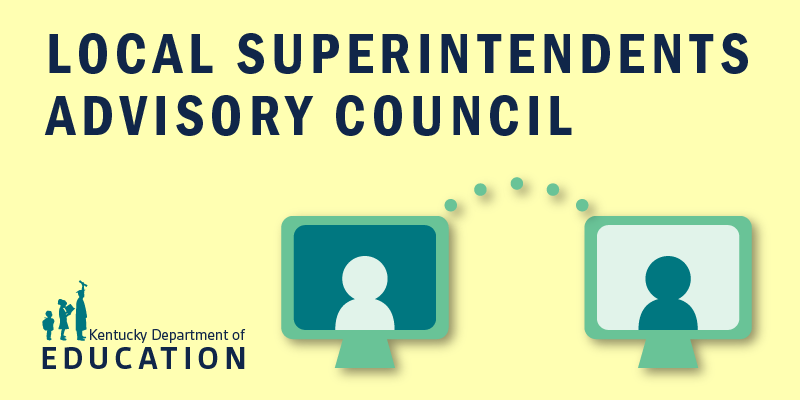
- There are many unknowns about what the start of a new school year might look like in Kentucky schools and districts should be prepared to adjust their plans.
- The board heard a report on progress in the search for the next commissioner of education and the executive search firm is beginning to recruit and contact potential applicants.
By Mike Marsee
mike.marsee@education.ky.gov
Services to local school districts will likely be unaffected by an upcoming budget reduction within the Kentucky Department of Education (KDE) due to a revenue shortfall brought about by the COVID-19 emergency, the Kentucky Board of Education learned May 7 at a virtual special meeting.
However, Interim Education Commissioner Kevin C. Brown told the board that probably won’t be the case if KDE is asked to make further budget cuts in the next fiscal year.
Brown said there is little left to cut within the administrative operations of KDE, noting that those costs account for less than 1% of the state’s total K-12 education budget.
“We’re down to the bone at the department,” Brown said. “When you start looking at less than 1% that KDE has for administrative purposes out of the total K-12 budget, you don’t get very far.”
The state budget director forecasted a general fund revenue shortfall that would be between $318.7 million and $495.7 million through the current fiscal year due to a sharp decline in tax revenue during the COVID-19 emergency. He asked state agencies to consider developing a plan to reduce their budgets by 1%.
Charles Harman, the director of KDE’s Division of Budget and Financial Management, said he expects that to equal to about a $3 million reduction at KDE over the remainder of fiscal year 2020, which ends June 30. He said Support Education Excellence in Kentucky (SEEK) funding and funding for local district health insurance costs were exempted from the reduction amount.
The board was told that reduction probably will not affect programs and services to Kentucky’s schools and districts.
“We think we can finish with little or no impact to school districts related to this reduction,” Harman said.
Revenues are expected to continue to decline as the economic downturn is expected to continue through the first half of fiscal year 2021 (July-December 2020).
“It wouldn’t surprise me a bit if in FY 21 there are other budget reductions that are required,” Harman said.
KDE bears the responsibility of funding a number of initiatives that have been enacted by the Kentucky General Assembly in recent years but did not come with funding from the legislature. Those items include standards development and implementation, industry certifications, turnaround audits, support for Comprehensive Support and Improvement schools and the development of a statewide school report card.
“We’re still trying to complete all these goals and responsibilities, but it’s hard when you’re not given extra funds to do that,” Harman said.
Harman said KDE is working to identify areas of potential savings within the department.
“The department is continually trying to be as frugal as humanly possible,” he said. “We constantly look at ways to keep our expenditures down, because every time we have a reduction in revenue, our first thought is, ‘What can we do to not impact districts or minimize the impact on our school districts?’”
Brown said he’s pleased that KDE will be able to avoid impacts on districts during the current reduction.
“This time we were able to do it without major effects on school districts, but that $3 million will have a major effect on the department’s ability,” he said.
He said the effects will be felt in areas such as an inability to fill vacant positions and in funding for Kentucky School for the Blind and Kentucky School for the Deaf, which are operated by KDE.
Brown noted that every education commissioner since about 2008 has faced budget reductions, and he said staffing levels at KDE have steadily declined over that period.
“There are issues that we’re getting that are a result of (these) continual cuts. We certainly can no longer provide the level of service that we’ve been able to provide as this moves forward,” he said. “We’re basically running on adrenaline and fumes.”
Commissioner search
The board heard a report from executive search firm Greenwood/Asher and Associates Inc. on its progress in the search for the next commissioner of education.
Representatives of the firm that was retained by the board said the position has been advertised across the country and a position profile has been created that describes KDE and details the characteristics the board is seeking in a commissioner.
Betty Asher, one of the firm’s partners, said the firm is beginning to recruit and contact potential applicants, a process that should take about a month.
“We’re looking at a whole variety of people to bring you the most diverse pool that we possibly can,” Asher said.
She also encouraged board members to consider possible candidates.
The search process has slowed slightly since the board set a goal of having a new commissioner in place by July 1. Brown said it might still be possible to name a new commissioner by then, but he or she would probably not be able to begin work for a few more weeks.
Brown took over as interim commissioner Dec. 18 following the resignation of Wayne Lewis as commissioner six days earlier. Brown had been serving as general counsel for the Jefferson County schools and the Jefferson County Board of Education, and he is on loan to KDE through an agreement that expires June 30. He said he is working with KDE and Jefferson County on an extension of that agreement.
Other business
The board heard updates on the impact of the COVID-19 emergency on students, teachers, schools and districts and on KDE’s work during the crisis.
Members of KDE’s leadership team said:
- The average participation rate in KDE’s Non-Traditional Instruction Program is between 91% and 92%.
- Food service programs operated through Kentucky schools and districts provided more than 4.6 million meals to more than 230,000 children during March.
The board also issued waivers to two regulations in response to the COVID-19 emergency:
- A waiver of the minimum graduation requirements was granted to the Fayette County and Jessamine County schools, both of which requested that requirements for elective courses be waived for certain populations of students in alternative and credit recovery programs. The board moved to make the same waiver available to other districts upon request.
- A waiver of a portion of the regulation governing the use of physical restraint and seclusion in schools temporarily removes the requirement that teachers receive annual face-to-face training on how to appropriately restrain and seclude students. Teachers who have not previously received this training would not be allowed to restrain or seclude students until their training could be completed.
The board’s next meeting is June 3.
MORE INFO …
- May 7 Kentucky Board of Education special meeting
- Kentucky Department for Public Health’s COVID-19 webpage
- KDE’s COVID-19 webpage
- COVID-19 Hotline (800) 722-5725




Leave A Comment